2022 Conscience Calendar
Trace a historical thread of freedom and the compromise of conscience.
Jews are expelled from France, again. After being banished and having their possessions stolen and auctioned in 1306, Jews were welcomed back to France in 1315—for a fee. Their reentry was also conditioned on them not openly practicing their religion or engaging in usury (loaning money and charging interest). What was it about European Christian theocracies that made them hate and exploit Jews so much?
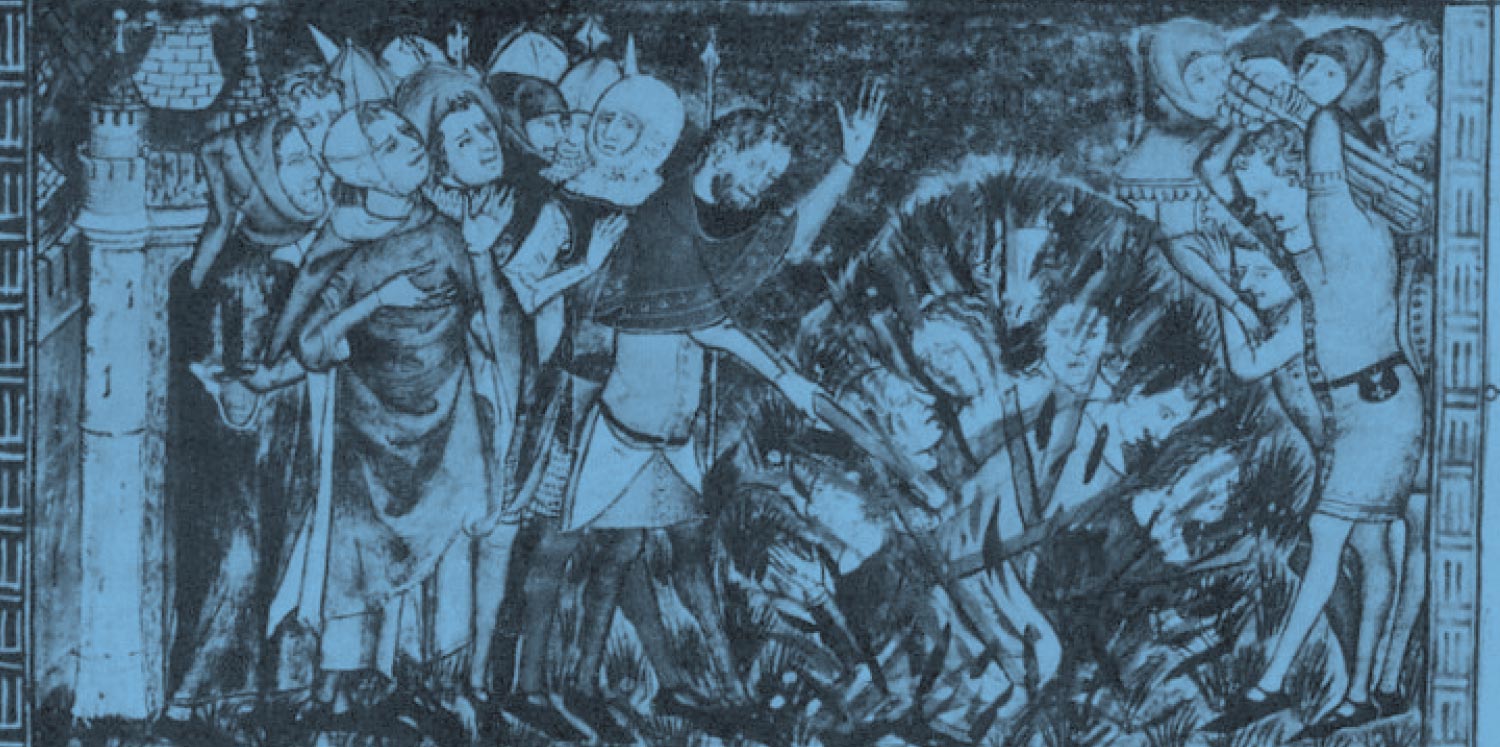
Hussites defeated papal crusaders, sent by Holy Roman Emperor Sigismund and Pope Martin V, at Německý Brod in Bohemia. Hussites, followers of Jan Huss (who had been burned at the stake in 1415), protested against the Church’s power over government. They also condemned indulgences, and advocated for equality between clergy and laity.
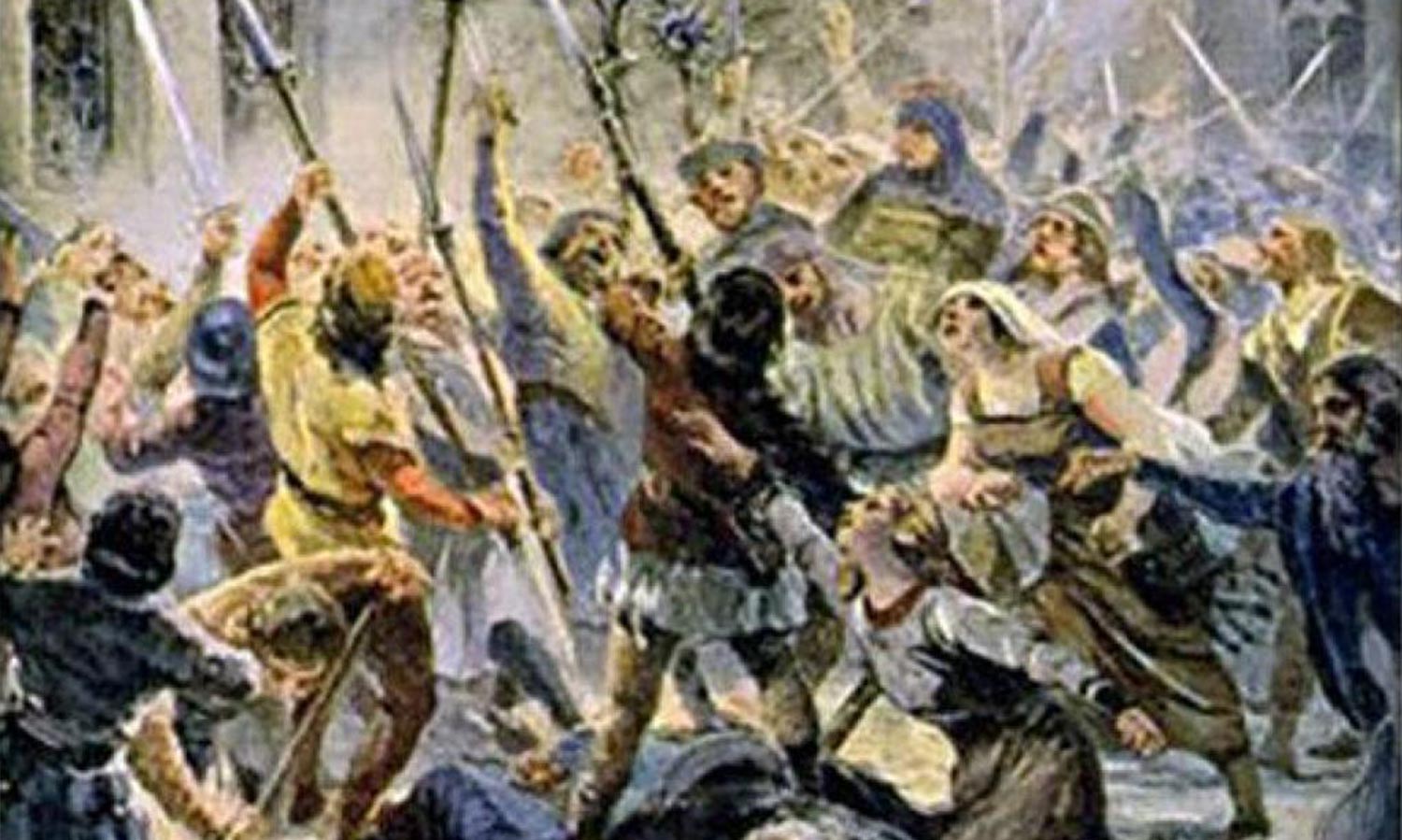
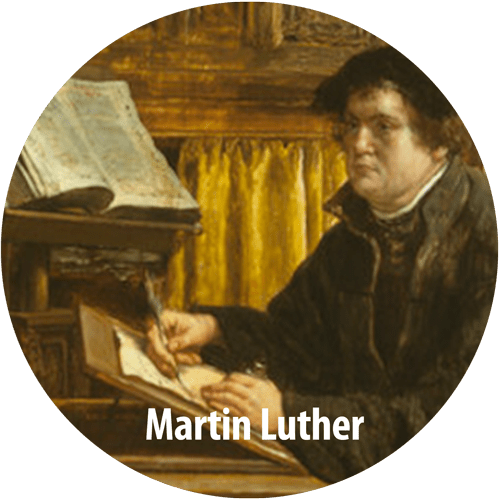
Martin Luther’s translation of the New Testament into German. Of the translation process, Luther stated, “We do not have to ask the literal Latin how we are to speak German. . . Rather we must ask the mother in the home, the children on the street, the common man in the marketplace. We must be guided by their language, by the way they speak, and do our translating accordingly. Then they will understand it and recognize that we are speaking German to them,” (www.Bibleresearcher.com).

French King Louis XIII and the Huguenots sign Treaty of Montpellier. This was a temporary truce between decades of Christian-on-Christian violence that claimed millions of lives. Whatever happened to 1 John 4:20? “If someone says, ‘I love God,’ and hates his brother, he is a liar; for he who does not love his brother whom he has seen, how can he love God whom he has not seen?” Such is the strange fruit of christian [with a little “c”] Nationalism.
The Treaty of Albany (or The Great Treaty) was signed by English colonial officials and representatives of several indigenous nations. Two English traders murdered a Susquehannock man named Sawantaeny in an area bordering Pennsylvania and Maryland. The British were afraid the situation would escalate into a full-scale war and sought to avert it through swiftly and severely punishing the murderers. Rather than seeking harsh individual penalties for the men, the First Nations people pushed the colonizers for a systemic way of repairing ruptured communities, involving “emotional reconciliation” and “economic restitution.”
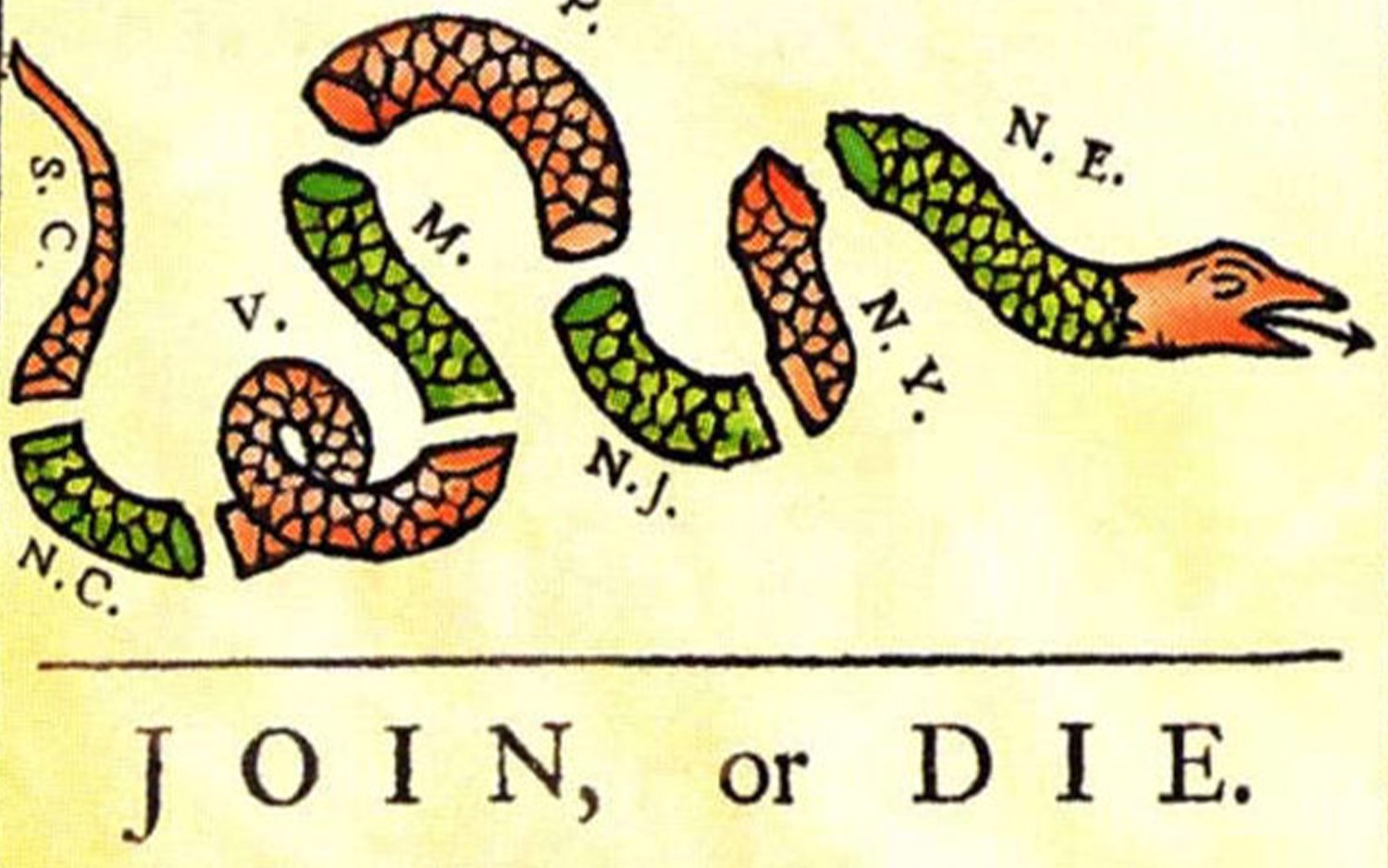


Denmark Vesey was executed on July 2 for organizing an armed exodus in South Carolina. Vesey had been fortunate to win a lottery and purchase his freedom in December 1799, yet he knew that until everybody’s free, nobody’s free. Vesey was one of the founding members of what is now known as (Mother) Emanuel African Methodist Episcopal Church in Charleston, South Carolina. After his freedom movement was foiled, the church was burned down by angry white people. Denmark’s son, Robert Vesey, led the rebuilding of the church in October 1865. A white supremacist terrorist tried to break Mother Emanuel’s spirit again 150 years later, but failed.
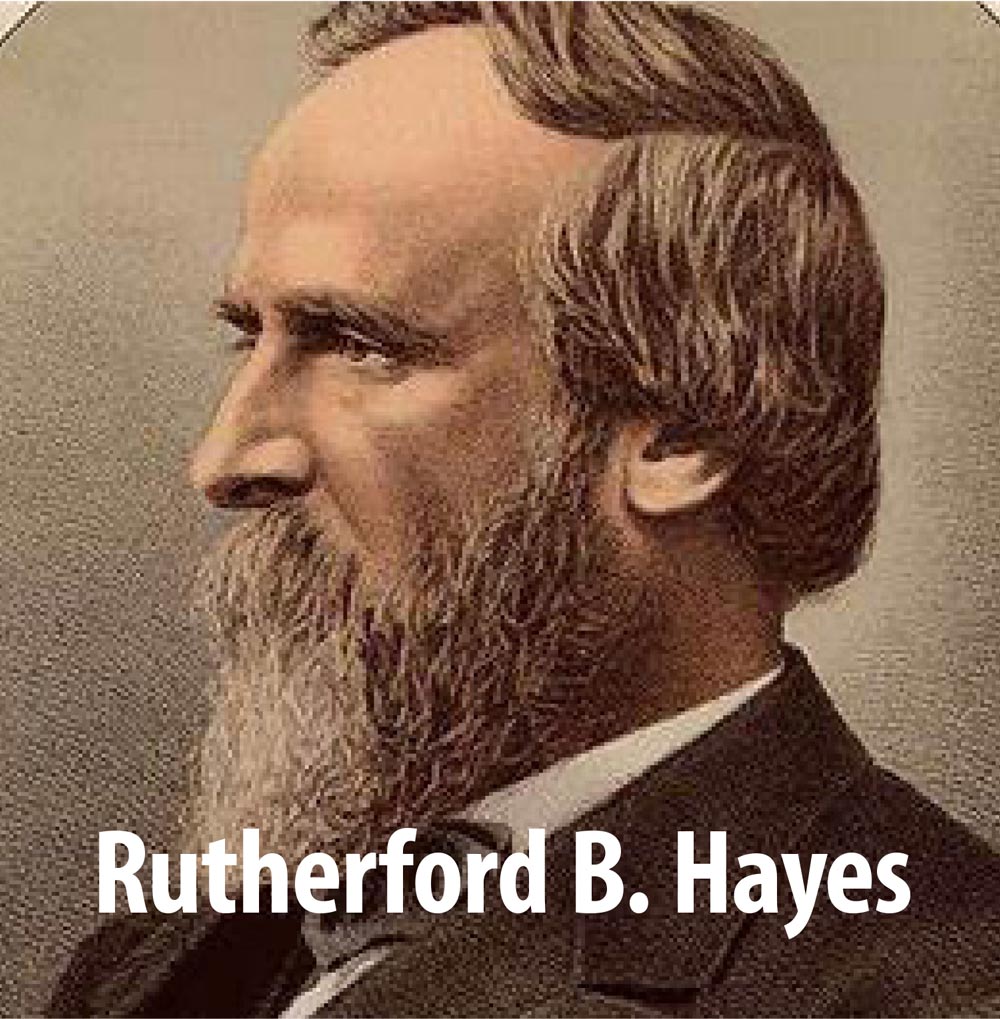
Rutherford B. Hayes was born on October 4. He would become the second U.S. President elected after losing the popular vote. Hayes ‘won’ after The Compromise of 1877 awarded him the contested electoral votes of Florida, Louisiana, South Carolina, and Oregon in exchange for the removal of Federal troops from the South that had been stationed there to enforce recent civil rights legislation. The gains of Reconstruction were quickly reversed by Southern “Redeemers.” The resulting Jim Crow era was established by white Christians of the Bible belt, with the blessings of the North.
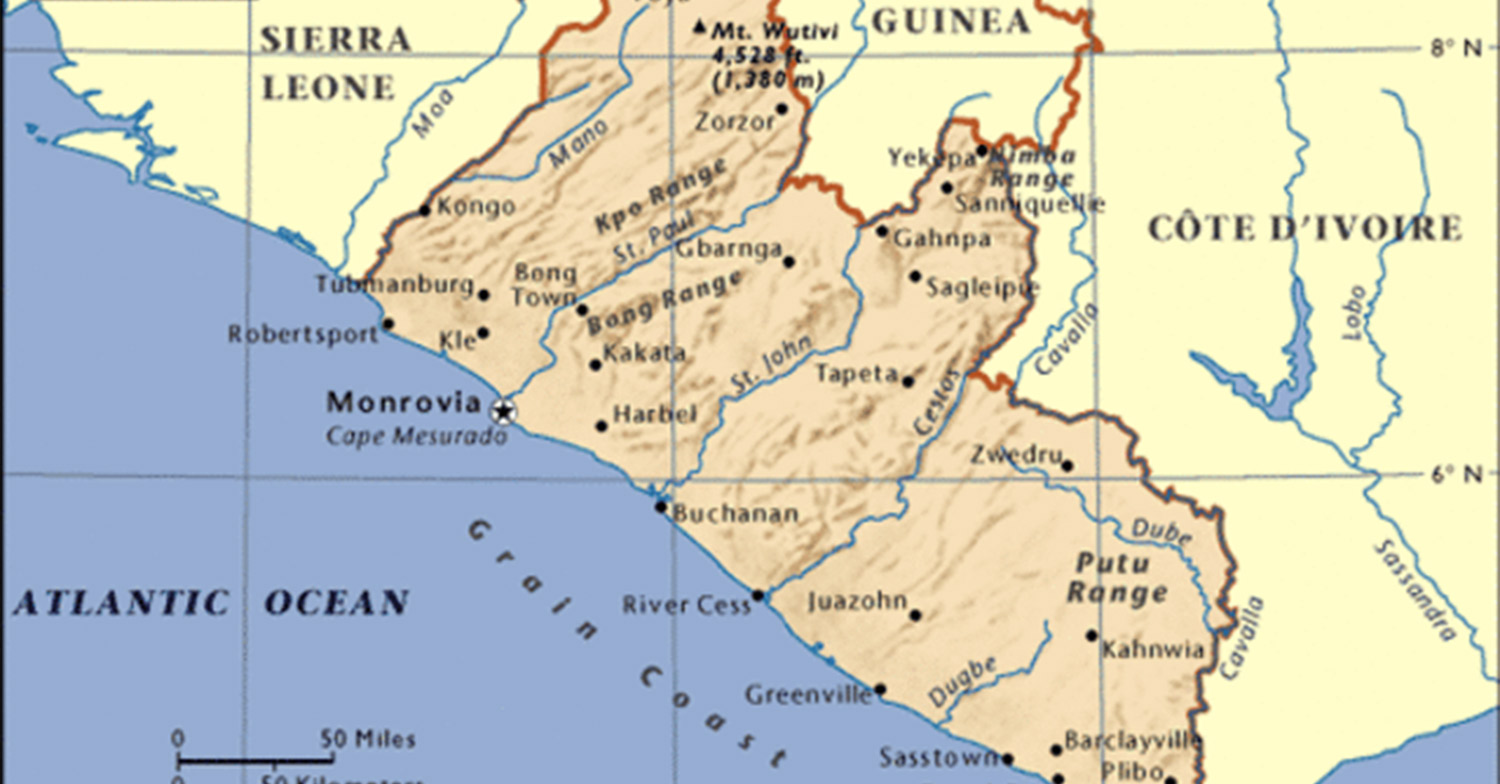
American Colonization Society established a settlement at Cape Mesurado (known as Ducor by the indigenous people) in present day Liberia, West Africa. These emigration efforts for “freedmen” were sponsored by networks of people with conflicting views. Some free blacks, like Paul Cuffe, believed Africa would be a beneficial destination for free blacks to escape American racism. Many white abolitionists believed in the inferiority of blacks and wanted them to go “back” to Africa to avoid integrating with them. Several slave states also supported emigration because the presence of free blacks gave enslaved blacks hope.
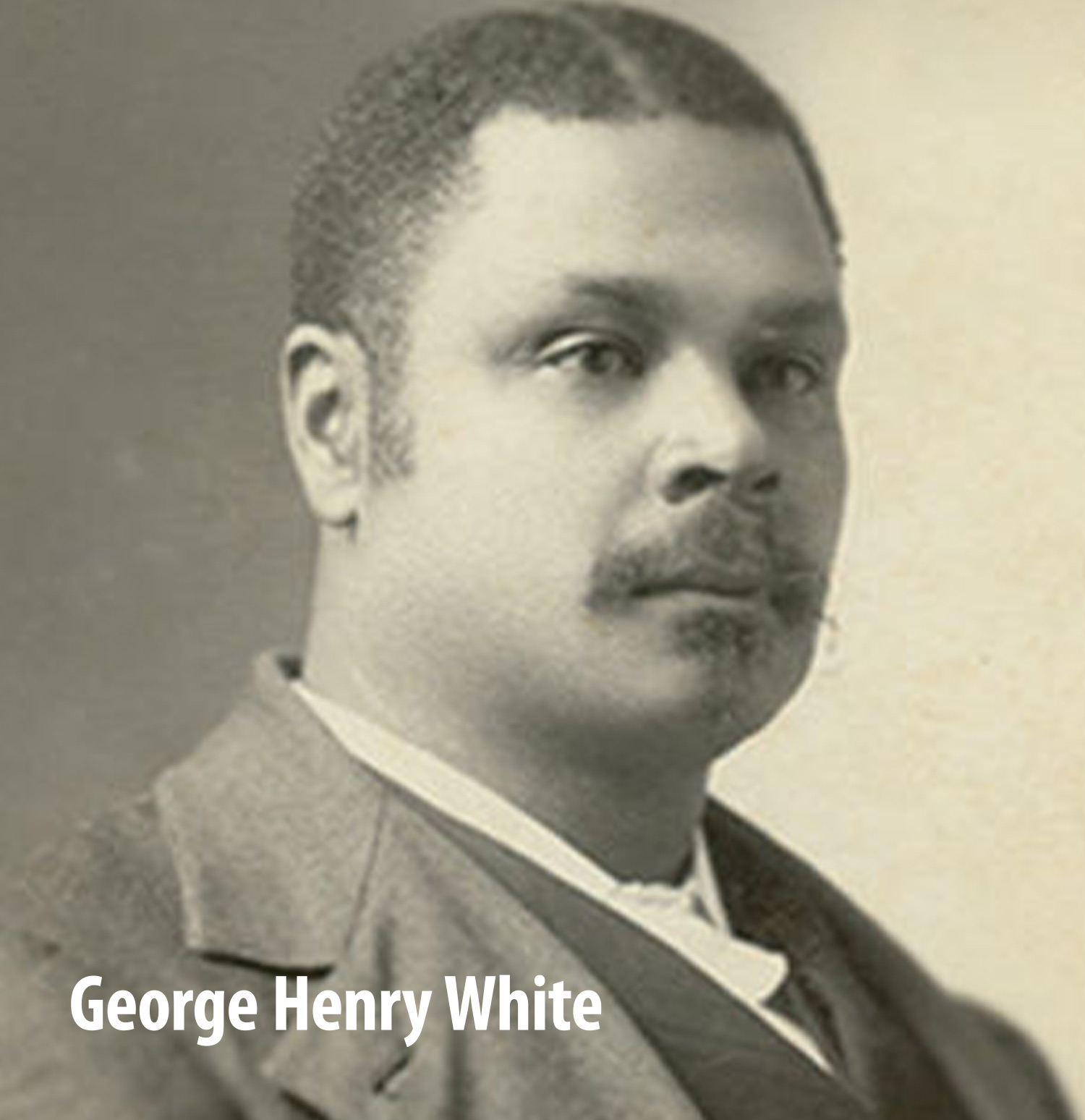
On December 4, a federal anti-lynching bill was killed by a filibuster in the United States Senate. The first anti-lynching legislation was introduced in 1900 by Rep. George Henry White of North Carolina (the only African American person in Congress at the time). The next 100 years would witness over 200 failed attempts to outlaw lynching, while thousands died from the orgies of violence.
The U.S. Supreme Court unanimously affirmed the 19th Amendment, protecting white women’s voting rights (as the majority of black women’s enfranchisement was delayed until 1965). Even after 36 states had already ratified the amendment, a Baltimore lawyer named Oscar Leser was still trying to purge women from registration rolls. He argued that Maryland’s state constitution only allowed men to vote and that his state had refused to ratify the amendment. Too bad SCOTUS hasn’t been united when it comes to protecting African American voting rights, because we still have states purging our rolls.
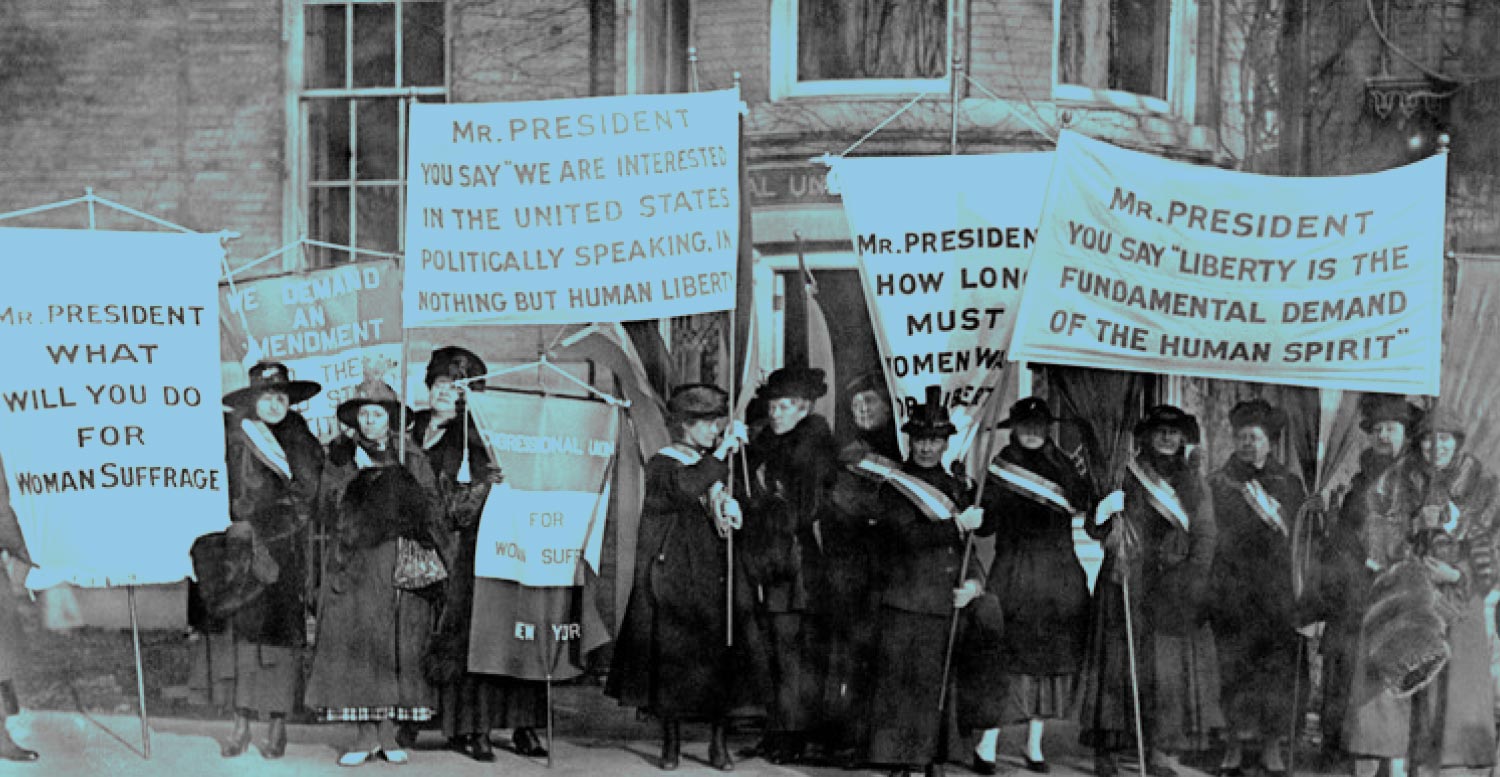
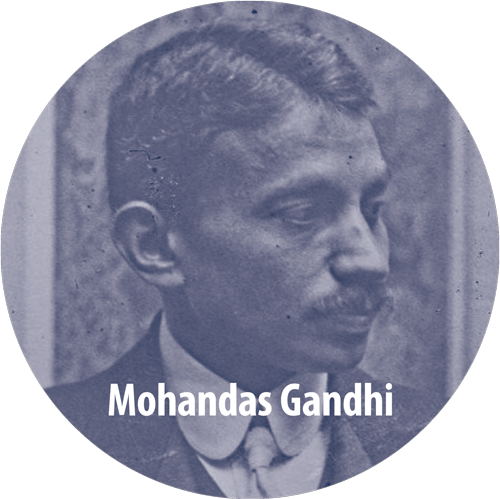
Mohandas Gandhi’s nonviolent insistence of Indian independence was rewarded with imprisonment for sedition on March 10. Gandhi’s turn-the-other-cheek philosophy was strongly influenced by his reading of Jesus’ Sermon on the Mount and Leo Tolstoy’s book, The Kingdom of God is Within You. Gandhi is widely remembered for saying, “I like your Christ, but not your Christianity.” Why? “The Christians above all others are seeking after wealth. Their aim is to be rich at the expense of their neighbors. . . The Christians are the most warlike people.” And they proved his point by unjustly imprisoning him. How is that, loving your neighbor?
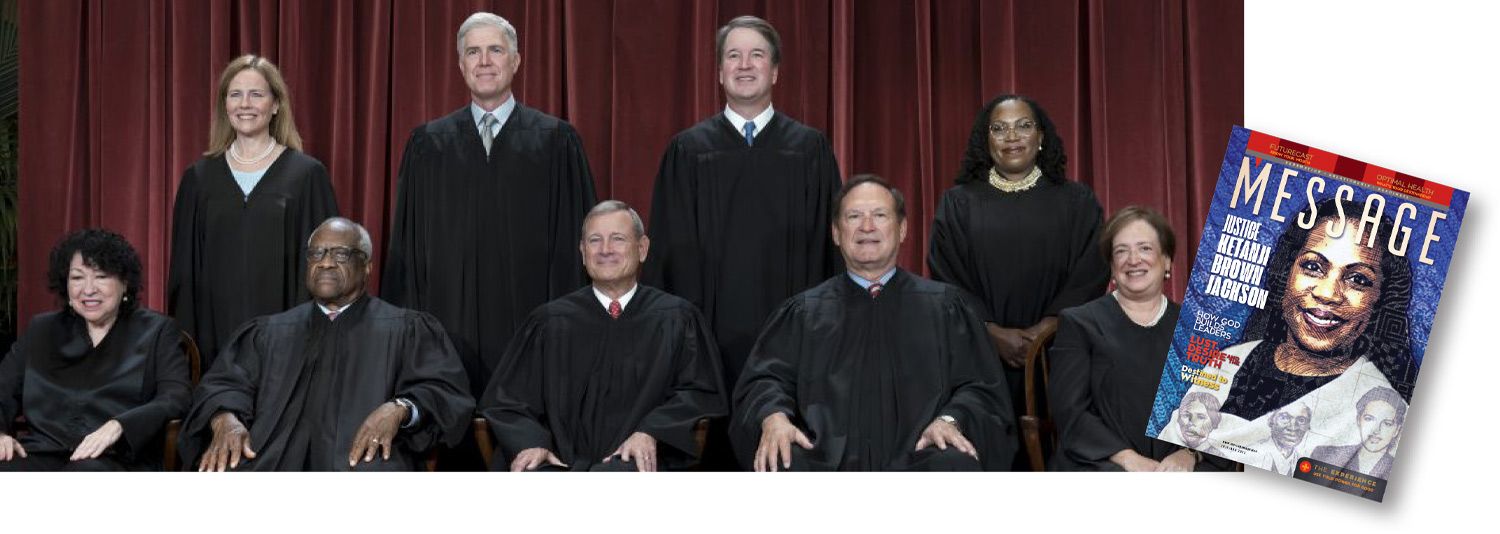
Finally, after centuries of being the guinea pigs for gynecology; wet nurses for massa’s children; backbones of black churches; grassroots organizers for Civil Rights; and tipping points for elections, African American women have someone to identify with at the U.S. Supreme Court in Justice Ketanji Brown Jackson!
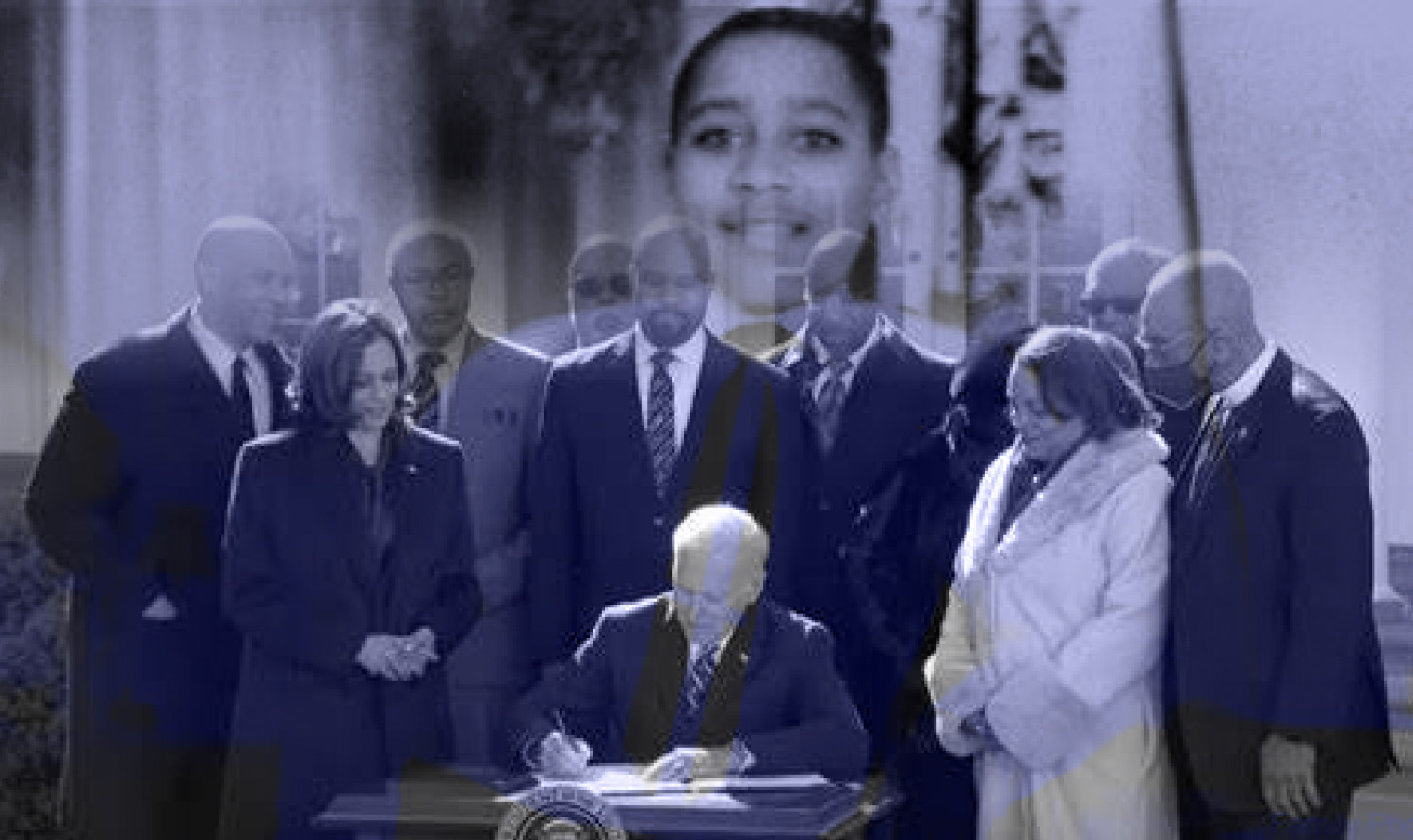
Finally, the Emmett Till Anti-Lynching Act was signed into law on March 29 by President Joe Biden. Yes, finally, 122 years after Rep. George Henry White introduced the first anti-lynching bill to Congress in 1900. Finally, after Ida B. Wells wrote Southern Horrors and A Red Record. Finally, after the Equal Justice Initiative documented over 6,000 lynchings since the Civil War ended. Finally, after Claude McKay wrote “The Lynching,” and after Mark Twain wrote, “The United States of Lyncherdom,” and after W.E.B. DuBois wrote “Jesus Christ in Texas,” and Langston Hughes wrote “Christ in Alabama,” and Welborn Victor Jenkins wrote “May America’s Sense of Justice Be Awakened,” and Countee Cullen wrote “The Black Christ,” and Robert Hayden wrote “Night, Death, Mississippi,” and Carrie Williams Clifford wrote “Little Mother,” and Paul Laurence Dunbar wrote “The Haunted Oak,” and Gwendolyn Brooks wrote “The Last Quatrain of the Ballad of Emmett Till,” and Richard Wright wrote “Between the World and Me,” and Esther Popel wrote “Flag Salute,” and Abel Meeropol wrote “Strange Fruit,” and Billie Holiday sang “Strange Fruit,” and Nina Simone sang “Strange Fruit,” and Diana Ross sang “Strange Fruit,” and Jill Scott sang “Strange Fruit,” and Annie Lennox sang “Strange Fruit,” and Andra Day sang “Strange Fruit,” and. . . exhausting isn’t it? Talk about a song in a weary throat!